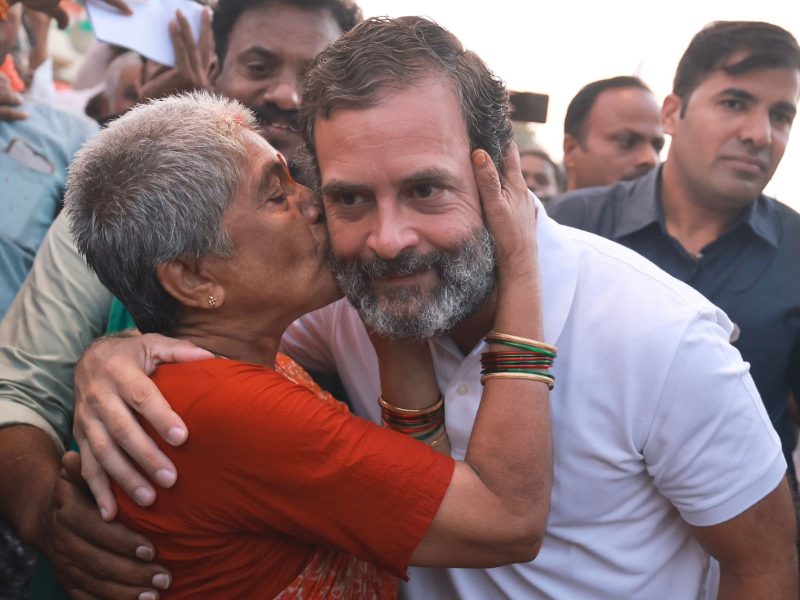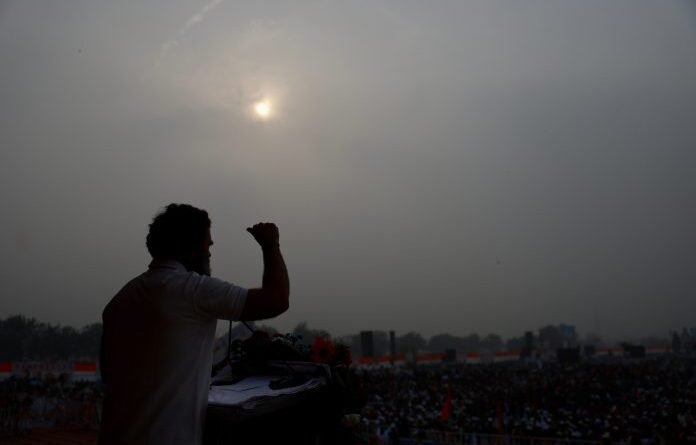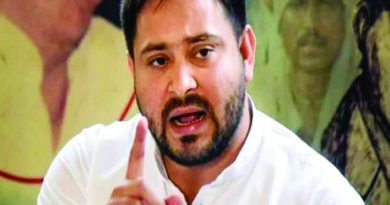Disqualification aftermath: Rahul Gandhi’s second coming
Through relentless persecution, the ruling dispensation has vested Rahul Gandhi with a political salience he had lacked
Sometimes, two wrongs do make a right. Rahul Gandhi’s conviction for defamation and his expedited disqualification from Parliament show how right he was when he said in London that India’s democracy is under attack. The ruling dispensation’s political practice itself comes to Rahul Gandhi’s defence, when it comes to offering substantive proof of his claim.
There is a strong school of thought that the BJP desires to keep Rahul Gandhi in focus, seeing in him not just a poor foil to Prime Minister Narendra Modi in the 2024 general elections but also a force of Opposition disunity — so long as Rahul Gandhi leads the Congress, the Opposition would be disinclined to come together as a united force, with the Congress and, therefore, Rahul Gandhi, at its leadership.
Emerging as the voice of India
This strategy is now unravelling. One key component of Rahul Gandhi’s ascribed ‘pappuness’ — a pappu being someone who is ingenuous as well as an imbecile — has been his apparent conviction, revealed through diligent practice, that core political activity consists of unleashing a slew of tweets every morning. Now, however, politics by statements is giving way to politics by action. With an admirable lack of humility, Rahul Gandhi now posits himself as the voice of India, and lays out core political facts with the simplicity of the little boy who pointed out that the emperor was actually naked.
The little boy’s triumph had been that he was, thanks to his disingenuity, unencumbered by the need to conform to a vocal plurality’s consensus or by fear of the consequence of pricking the balloon of balderdash in which the emperor cocooned himself. He called it as he saw it.
When Rahul Gandhi says the institutions of democracy are being cowed or manipulated, it rings true. Opposition leaders are being raided by Income Tax authorities. True, those who evade tax should be punished. But are tax evaders present only in the ranks of the Opposition? Why are there no ruling party affiliates among the 1,000-odd targets of tax-seeking raids? The CBI, the Enforcement Directorate, other investigative agencies are all seen to be used to intimidate the Opposition into the submissive passivity to which a leader like Mayawati has been reduced.

The Election Commission’s conduct has been seen to be such as to call for radical change in the manner of the body’s appointment. Instead of the Executive appointing the Commission, the Supreme Court has ruled the body would be appointed as recommended by a committee comprising the Prime Minister, the leader of the Opposition and the Chief Justice of India.
The legislature meets simply to pass the laws formulated by the government. Discussions in which the government’s conduct is examined, shortcomings pointed out and the political leadership held to account just do not happen. Even the Budget is passed without discussion.
For the civil service and the police, the normative order of following the hierarchy of command makes privileging doing the right thing difficult at the best of times. These are not the best of times. When conflict arises between the oath they have sworn to the Constitution and practice flowing from the instructions received, rare is the officer who has the intellectual or moral bandwidth to stand by what is right, especially when it is clear that non-cooperation can ruin careers or even lead to jail, while enthusiastic cooperation can lead to glory. Revv up that bulldozer? Yessir! Demolish that building? Yessir! Arrest that man for criticizing the Prime Minister? Yessir!
The ranks of the lower judiciary are filled with people who readily frame charges of sedition for conduct that comes nowhere near the standard set by the Supreme Court for this offence that the Constituent Assembly debated and discarded as a valid reason for restricting free speech but survives in our jurisprudence as part of the colonial-era law, the Indian Penal Code. Instigation of proximate violence against the state alone constitutes the offence of sedition, the Supreme Court made clear while acquitting two people who had shouted, ‘Khalistan Zindabad!’ at a public place on receiving news of Indira Gandhi’s assassination and had been charged with sedition.
Even the higher judiciary is filled with members who strongly empathise with hurt sentiments, especially when these are of the majority community, and let legal norms slip, such as bail is the rule and jail the exception. The current Chief Justice has, thankfully, disparaged evidence submitted in sealed covers, but members of the higher judiciary have been willing to let ‘national security’ overwhelm civil rights. Frail old Stan Swami died in prison, the other accused in the alleged Bhima Koregaon conspiracy continue as targets of a prosecution seemingly bereft of proof, substance or an end.
Organisations on tight leash
Civil society organisations are put on a tight leash. An eminent think tank such as the Centre for Policy Research is tainted by tax raids. Foreign contribution eligibility is arbitrarily withdrawn from agencies that do not toe the official line. Voluntary organisations are painted as enemy agents working against the nation.
Also Read: Is India on the brink of becoming a totalitarian system?
As for the Fourth Estate of democracy, the shift in public esteem and respect as its practitioners transit from journalists to media people is striking. That television programming gurus have tweaked the content of the nightly serials to make them more appealing to male viewers testifies to the flight of audiences from ‘news’ to more straightforward forms of entertainment. The preponderance of government advertisements in the revenue streams of media organisations bodes ill for the health of democracy.
Social media thrives as a realm of raging propaganda, constant mythmaking, self-reinforcing echo chambers and distortion of reality. One of the ill effects of India’s mobile data revolution is the penetration of social media dope to India’s far reaches and into minds with little exposure to mainstream media.
Indian democracy is under attack, without any trace of doubt.
And Rahul Gandhi is the visible evidence of this attack. He is attacked in Parliament for what he said abroad. The very same people who had poked fun at D K Barooah’s fawning comment that India is Indira and Indira is India, now implicitly assume that India is Modi and Modi is India and interpret Rahul Gandhi’s criticism of the Modi government as an attack on India.
BJP leaders are quick to anger at any attack on Modi — they slap police cases, condemn insulting the prime minister. They come from a tradition of sloganeering Rajiv Gandhi chor hain, gali gali mein shor hai (Rajiv Gandhi is a thief, they chant in every lane and bylane).
People can see the double standards.
Those in public life face criticism, often scathing, especially from political rivals. Instead of seeing this is part of the practice of democracy, the BJP has thought it fit to sentence Rahul Gandhi to a two-year term in prison and, without losing a second, strip him of his membership of Parliament, vested on him by the people of this country.
By converting Rahul Gandhi into a practising, as opposed to pontificating, champion of democracy, the ruling dispensation has given him a new salience he had lacked.
(TK Arun is a senior journalist based in Delhi)
Source : T K Arun




